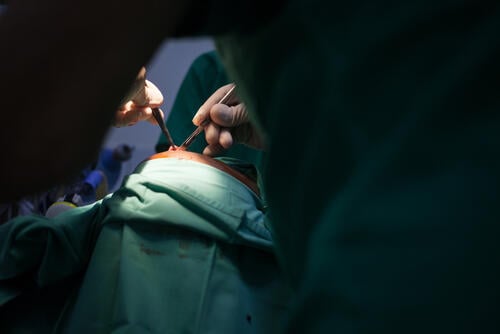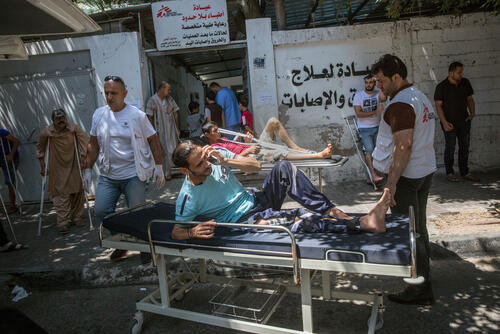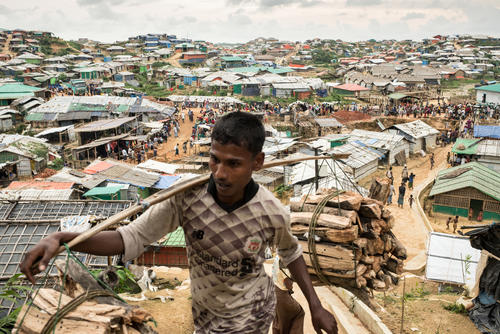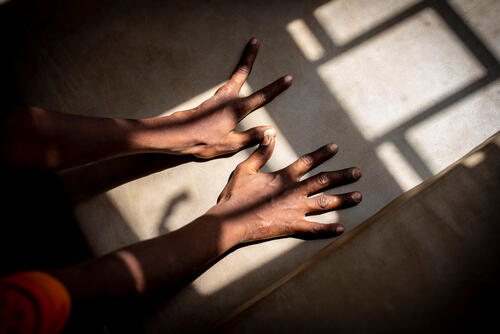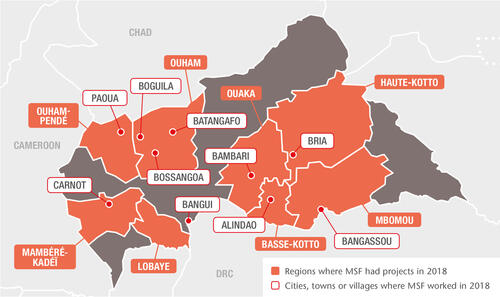
852,600
852,6
546,800
546,8
54,500
54,5

17,800
17,8
9,970
9,97
5,290
5,29

4,010
4,01
Médecins Sans Frontières (MSF) continued to provide lifesaving care amid brutal attacks against civilians, including killings and sexual violence. Whole villages and displacement sites were burned down, exacerbating the already immense humanitarian needs.
By the end of 2018, almost 650,000 people were internally displaced, while the number of refugees from CAR in neighbouring countries had risen to 575,000 (from 540,000 at the beginning of 2018).<a href="https://reliefweb.int/report/central-african-republic/bulletin-humanitaire-r-publique-centrafricaine-num-ro-40-d-cembre">OCHA Humanitarian Bulletin, December 2018</a>
Access to medical care, food, water and shelter was severely restricted by the conflict, and our ability to respond was repeatedly hampered by insecurity and attacks on our facilities.
Nevertheless, we continued to run projects for local and displaced communities in eight provinces and in the capital, Bangui, providing primary and emergency care, maternal and paediatric services, trauma surgery and treatment for malaria, HIV and tuberculosis (TB).
Responding to the spiralling violence
At the beginning of the year, we expanded our programme in Paoua as violent clashes between two armed groups turned into large and indiscriminate attacks against civilians, causing 90,000 people to flee their homes.
Our team in Paoua town, where over 75 per cent of the displaced sought refuge, distributed safe water, offered primary healthcare and ran mass vaccination campaigns and health surveillance activities.
The situation also deteriorated in Bangui. In April and May, our teams worked around the clock to offer first aid to the wounded in Gbaya Dombia maternity facility in PK5 district, referring those requiring surgery to the MSF-run SICA hospital. On 1 April, the hospital received over 70 casualties within just a few hours.
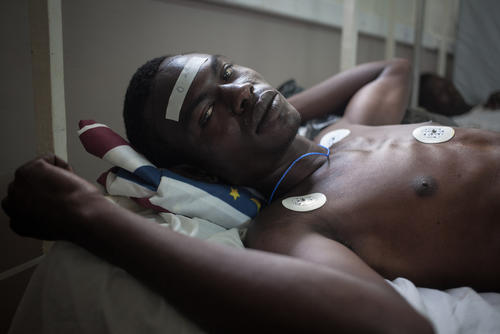
In April, we returned to Bangassou, where we had been forced to suspend activities for five months following several security incidents. With a smaller team at the regional hospital, we focused on lifesaving care, including support to the critical care unit, emergency room and neonatology ward.
In the departments where we no longer had staff, we continued to supply drugs and provide financial and material support, and training. We also had teams working at displacement sites, including one in Ndu, a village over the border in the Democratic Republic of Congo (DRC), where many people took refuge following violence in 2017.
In Bambari, we had to temporarily scale down our operations in April after the violent looting of our facility. Once lauded as an example of successful and lasting disarmament, the town again became a battlefield, and the hospital where we work was stormed by armed groups.
Full capacity was restored at the end of June, allowing us to continue our comprehensive medical programmes serving war-wounded patients, sick and malnourished children, and pregnant women requiring emergency surgery.
In November, 10,000 people took shelter in the compound of the MSF-supported Batangafo hospital, as combatants torched three sites hosting displaced communities. The hospital was then threatened and accused of sheltering “enemies”, while roadblocks and the presence of combatants around or within its premises hampered access to all those in need.
A few days later, an armed group attacked a displacement site in Alindao, leaving at least 100 people dead and causing over 20,000 to flee into nearby villages. In response, we sent a team to address their most urgent medical needs.
In addition to running mobile clinics and conducting vaccinations, we supported Alindao health centre and the emergency room at the hospital, and organised referrals to Bambari for the most severe cases.
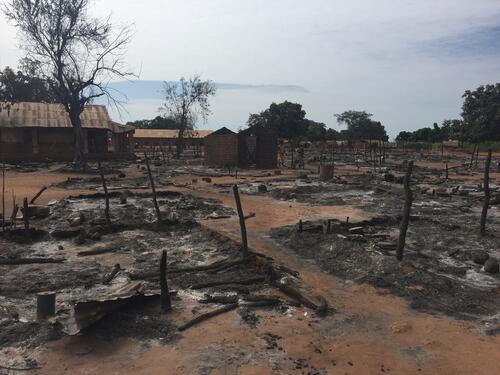
Tackling the silent killers: malaria and HIV
By creating additional barriers to healthcare, the conflict is compounding the chronic medical emergency that has been unfolding in CAR for decades. Malaria remains the main killer of children under five, and HIV/AIDS is a leading cause of death among adults. We focus on providing treatment for these diseases, and making it as accessible as possible.
Almost 547,000 patients were treated for malaria in 2018, including more than 163,000 in Bossangoa and Boguila alone.
To mitigate the daily challenges of living with HIV, MSF supports patients in Bossangoa, Boguila, Kabo and Batangafo to form community-based groups so they can take turns to pick up each other’s antiretroviral medication at health facilities. In Carnot, where we provided care to 1,775 people living with HIV in 2018, we continue to work on decentralising HIV/AIDS treatment.
Protecting the health of women and children
We assisted almost 9,600 births in Bangui, and offered sexual and reproductive healthcare to reduce sickness and mortality from obstetric complications and the consequences of unsafe terminations of pregnancy, the main cause of death among women arriving at MSF-supported maternity facilities in the city.
We are supporting family planning services in a number of ways to address the issue of unwanted pregnancies, for example with the provision of condoms, contraceptive implants and pills, tubal ligation and termination of pregnancy if required.
Our teams also support routine vaccinations and conducted several mass campaigns in 2018. In such a volatile context, we took advantage of every opportunity to vaccinate children and carry out other preventive measures such as deworming treatments and the distribution of vitamins and mosquito nets.
In October, we sent a team to Mbaïki, in Lobaye province, in response to an outbreak of monkey pox. We set up a surveillance system and treated a dozen patients. A month later, we tackled an outbreak of hepatitis E in Bocaranga, in Ouham-Pendé province.



